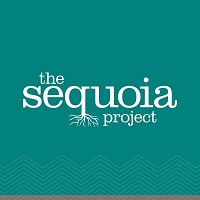 Growth Marked by Increases in Participation, Number of Health Records Exchanged and Connectivity Expansion in All 50 States
Growth Marked by Increases in Participation, Number of Health Records Exchanged and Connectivity Expansion in All 50 States
The Sequoia Project (@sequoiaproject), the leading independent advocate for nationwide health data sharing, celebrates its fifth anniversary this month by announcing that its initiatives – Carequality, eHealth Exchange, and RSNA Image Share Validation – have grown in every conceivable way over the past year, by health organization participants, by geographic reach, and by the sheer number of health records exchanged electronically.
Today, the Carequality Interoperability Framework is widely implemented by more than 19,000 clinics, 800 hospitals, and 250,000 providers. This marks a dramatic increase from one year ago, when Carequality published the nation’s first interoperability framework for trusted health data exchange between and among networks, and 10 pioneering organizations signed up to implement.
The Carequality framework provides a unified health data sharing agreement that outlines how health records are shared. This eliminates the need for individual health organizations to negotiate one-off legal agreements every time they wish to share information with another health organization, which is both time-consuming and costly.
Another Sequoia initiative realizing year-over-year growth is the eHealth Exchange, the largest health data sharing network of its kind in the US. The eHealth Exchange network, which began more than eight years ago as an initiative of the Office of the National Coordinator for Health IT (ONC), has grown steadily over the past several years under the stewardship of The Sequoia Project, achieving a 35 percent growth in participation last year alone. To date, the eHealth Exchange connects participants in all 50 states, including four federal agencies, 65 percent of all U.S. hospitals, 46 regional and state HIEs, 50,000 medical groups, and more than 3,400 dialysis centers and 8,300 pharmacies. Combined, the eHealth Exchange supports more than 109 million patients across private, military, veteran, and public care settings.
Both, the Carequality Interoperability Framework and the eHealth Exchange network, are continuing to evolve not only in size but also capabilities and support for its participants beyond standard query for documents utilized by other initiatives around the country. The eHealth Exchange network now allows a dozen use cases including most recently image sharing and life insurance. This month, Carequality launched a new workgroup to improve the content of the health records exchanged.
“We’re experiencing phenomenal growth in building seamless, nationwide health data exchange that unifies providers and patients through a common set of technology standards and rules,” said Mariann Yeager, CEO of The Sequoia Project. “Our comprehensive approach allows health records to follow the patient wherever they receive care, in an integrated way. Using our Carequality framework and eHealth Exchange network, physicians can access a more complete health history while treating patients. This enables them to improve better care coordination for patients by leveraging health IT interoperability.”
The Sequoia Project’s RSNA Image Share Validation initiative uses rigorous technical testing to ensure interoperable and efficient exchange of medical images. This benefits patients and providers with improved efficiency, reduced costs, enhanced quality of care, and standards-based interoperability to spur innovation. This winter, seven companies achieved validation and still others are in the process as the program transitions from pilot to production mode.
